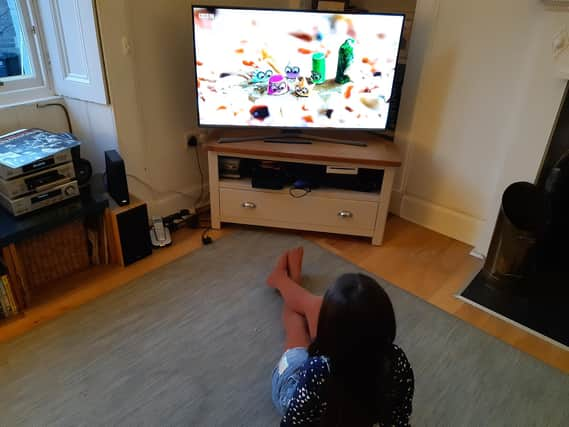Ofcom warns that Scots are most dissatisfied with 'range and authenticity' of BBC portrayal


Ofcom said that just 38 per cent of Scots were happy with the authenticity of the BBC’s portrayal of Scottish people in its programmes, while just 41 per cent of those living north of the border said they felt well-represented on the BBC. Viewers in Scotland were among four groups singled out by the report as ones which, alongside ethnic minority audiences, those aged under 35, and those in lower socio-economic groups, were dropping away from the BBC.
Meanwhile, the regulator is calling on the industry as whole to broaden the geographic and social make-up of its workforce.
Advertisement
Hide AdAdvertisement
Hide AdOfcom’s annual study of the industry’s diversity found that the social class and geographic background of TV and radio workers are poorly understood. It said that while broadcasters are collecting more information on the socio-economic background of their employees than a year ago, there remains no such information for around 60 per cent of employees.
Ofcom’s analysis shows that TV and radio employees are around twice as likely to have grown up in a professional home compared to the UK population, and twice as likely to have been privately-educated. Most broadcasters' workforces are still primarily based in London, even though four-fifths of the population live elsewhere.
Audiences consistently say they expect to see programmes that authentically portray modern life across the UK, its nations and regions. Ofcom said that to achieve that, broadcasters need to reflect the whole society they serve.
It said that as the UK’s national broadcaster, the BBC has an opportunity to lead the way on better representation, but warned that Scots – as well as those living in west and south-west England - felt least well authentically portrayed on screen. However, it said that the BBC Scotland channel and Scottish news programme, The Nine, had gone some way to addressing some of the issues raised.
However, Ofcom said it was “concerned” that the BBC’s own measures of audience satisfaction are “too narrow” and do not adequately identify all of its underserved audiences. The report said: “This risks the BBC losing further sections of its audience and contributing to a reduction in reach.”
Vikki Cook, Ofcom director of broadcasting policy, said: “The door to the broadcast industry should be wide open to everyone, regardless of what part of the country you come from, or what school you went to.
“We’re calling on major broadcasters to look beyond London and attract the best talent from a range of areas and backgrounds, so the programmes they make feel relevant to every part of society.”
The report also found that older disabled adults feel they are the least visible on the BBC. Fewer than half of disabled people aged 65 or over think the BBC does a good job in representing them in programmes. Similarly, only a third feel positively about how they are portrayed.
Advertisement
Hide AdAdvertisement
Hide AdMeanwhile, people from working-class backgrounds feel underserved by the BBC. Less than half rate the BBC highly for ‘showing a good range of programmes that include people like me’. Still fewer feel positive about how genuinely the BBC portrays them. By comparison, people from more affluent homes are much more likely to rate the BBC highly on these aspects. Black audiences, however, give the BBC an above-average rating for representation, but they are much less content with how they are portrayed.
A spokesman for the BBC said: “Ofcom’s view that BBC Scotland may be starting to have a positive impact on viewers’ perception of representation and portrayal in Scotland is very welcome as we launched the channel precisely because our audience made it clear to us that they want more content from us that reflects their lives.
“We know that we’ve still got work to do in this respect however, and the channel is still in very early days and will evolve – but its impact on viewers and the significant boost it’s given to the Scottish creative sector is clearly acknowledged and is heartening.”
“We’ll continue trying to use the channel schedule, along with programmes made here that get shown across the UK, to offer more distinctive and relevant content that informs, educates and entertains.”
The lockdown had an immediate impact on radio listening, with substantially reduced in-car and workplace listening, which typically accounts for around 40 per cent of all listening. However, BBC research shows that around a third of adults tuned in to radio for up-to-date information about the pandemic at the start of lockdown and also indicates that listeners continued to turn to radio for companionship and music.
It added that a need for home learning material had been produced well by the BBC.
The report said: “In particular, the BBC played a special role in the sector as it supported UK parents to home-school their children when schools were shut, by providing a wide range of educational content for all school ages across all platforms and tailored to each nation of the UK.”
A message from the Editor:Thank you for reading this article. We're more reliant on your support than ever as the shift in consumer habits brought about by Coronavirus impacts our advertisers.
If you haven't already, please consider supporting our trusted, fact-checked journalism by taking out a digital subscription.